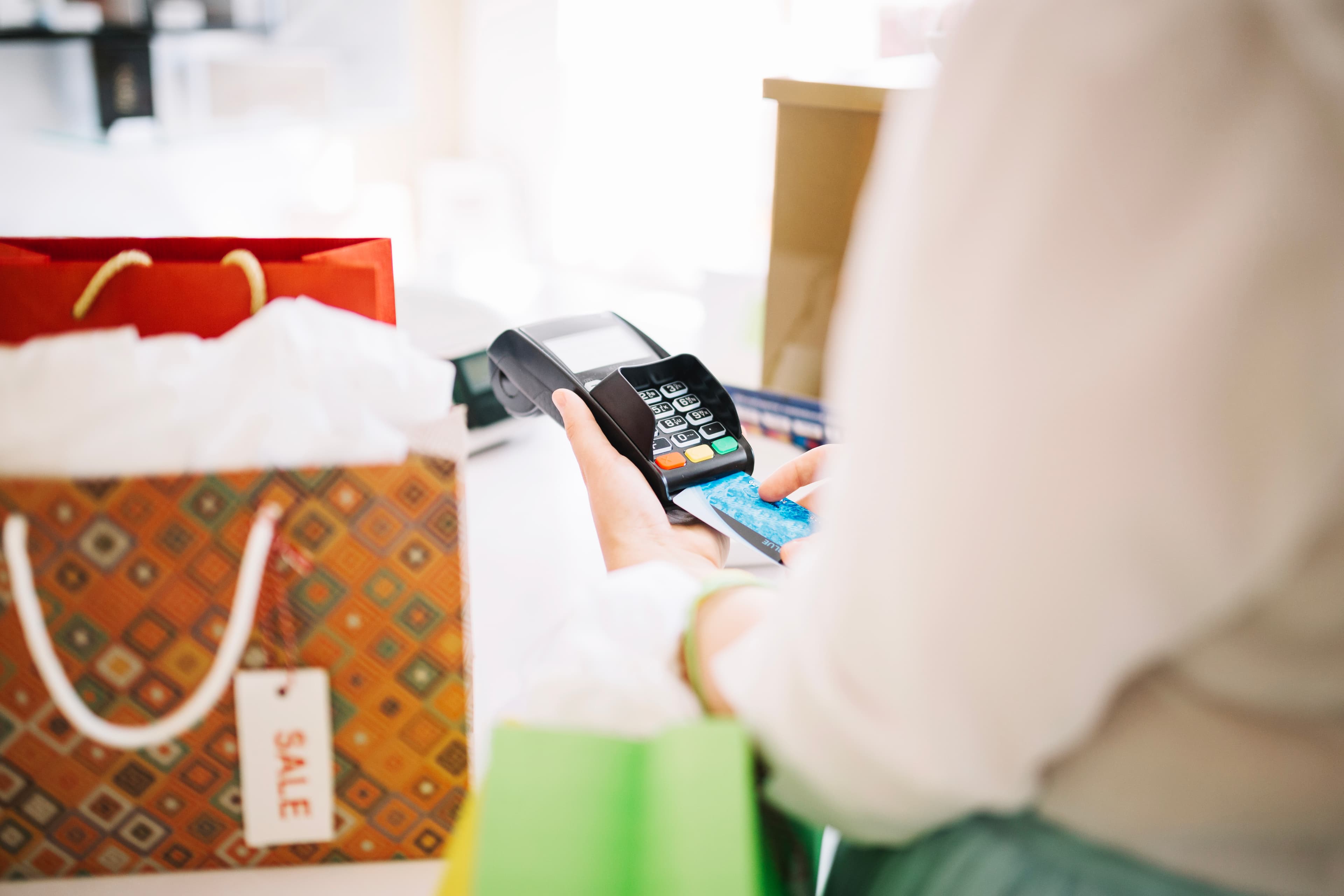Saving money when shopping
April 28, 2025
|
8 min read

Saving money is an important skill these days, offering both short-term and long-term financial security. In everyday life, there are many ways you can save a lot of money by making conscious choices and simple changes to your spending habits. Whether it's buying groceries, dealing with financial services or managing leisure activities, there are numerous tips and strategies that anyone can use to easily save money in everyday life. This article takes a closer look at various approaches to saving money in everyday life and provides practical advice on how to manage money more sustainably in daily life.
Conscious shopping and price comparison
One of the simplest and most effective ways to save money in everyday life is to shop consciously and compare prices. This applies to both grocery shopping and larger purchases.
Grocery shopping:
Compare prices: One of the biggest items in the household budget is food. If you shop regularly, you can save a lot of money by comparing prices and offers. Supermarkets and discount stores often offer similar products at different prices. It's worth comparing pricing, both in physical stores and online stores.
Take advantage of special offers and discounts: Look out for special promotions and discount stamps offered in supermarkets and drugstores. Many stores offer discounts for loyal customers or promotions such as «buy 1, get 1 free». Cashback programs or voucher codes for online stores can also help you save when shopping.
Bulk and small purchases:
Go for own brands: Many supermarkets and discount stores offer high-quality own brands that are significantly cheaper than well-known branded products. These products are often similar or even identical in quality to expensive branded products, but offer better value for money.
Planning is the be-all and end-all: Targeted shopping planning can help to avoid unnecessary purchases. Make a list of the items you need before you go shopping and stick to it to avoid impulse purchases.
Use cashback programs
Cashback programs are a popular way to save money when shopping by getting a portion of the amount paid back. These programs can be used for both online and in-store purchases. Examples of cashback programs:
poinz: The leading platform for cashback in Switzerland is poinz, where you can collect cashback by shopping at local stores as well as online stores. This cashback can be paid directly into your bank account or redeemed for gift cards. More than 1.2 million people already use poinz for their daily shopping.
Rabattcorner: This platform offers cashback for purchases at many popular online stores. You can get a certain percentage of the purchase price back by visiting a partner store via the cashback platform. Discounts and vouchers are also frequently offered.
These programs help to reduce the amount of money you spend on products or services in the long term. However, you should make sure that you don't make any unnecessary purchases just to receive cashback.
Use of loyalty programs and bonus points
Many retailers and service providers offer loyalty programs that allow you to collect bonus points through regular purchases. These points can later be converted into discounts or other benefits.typical loyalty programs:
Supermarkets: many supermarket chains such as Coop or Migros offer loyalty programs where you collect points for every purchase. These points can then be converted into vouchers or discounts.
Booksellers and online stores: Online stores and booksellers also often offer loyalty programs. These often offer additional discounts or gifts if you shop there regularly.
By collecting and redeeming loyalty points in a targeted manner, you can make considerable savings over time. However, make sure that you only shop when you really need something so that you don't spend more than necessary.
Avoid impulse buying
Impulse buying is one of the biggest reasons for unnecessary spending in everyday life. These purchases often happen when you are tempted by an offer without really having a need for it. There are various strategies to avoid impulse buying and thus save money:
Tips against impulse buying:
Make a list: Before you go shopping, make a list of the items you really need. Stick to this list and avoid buying additional items that are not on it.
Avoid shopping centers and malls: Shopping centers and malls are designed to entice you to shop. If you resist the urge to go shopping there, you will be less tempted to buy unnecessary things.
Wait 24 hours: If you want to buy something that's not on your list, wait 24 hours before you make the purchase. You will often find that the urge to buy will subside.
Save energy and water
Another big area where you can save money in everyday life is energy consumption. Electricity, gas and water make up a significant part of your monthly expenditure, but by taking a few simple steps you can reduce your consumption and save money.
Tips for saving energy:
Use energy-saving light bulbs: Replacing conventional light bulbs with LED bulbs can significantly reduce electricity consumption.
Switch off electronic devices: Make sure that devices such as televisions, computers or coffee machines are switched off after use. Standby modes also consume electricity unnecessarily.
Reduce heating costs: Make sure the room temperature is appropriate and avoid turning up the heating unnecessarily. A thermostat can help to regulate the temperature and reduce heating consumption.
Tips for Save water:
Use water efficiently: Install water-saving showerheads and faucets and make sure to reduce water consumption, especially when showering and washing dishes.
These simple changes can lead to significant savings in running costs in the long run.
Buy second-hand products
Another way to save money in everyday life is to buy second-hand products. Buying second-hand items can save a lot of money on both larger purchases and everyday consumer goods.
Clothing: Second-hand stores or online platforms such as eBay or Ricardo offer a variety of second-hand clothing at greatly reduced prices. Many of these items are in very good condition, which means you don't have to compromise on quality.
Furniture and household appliances: Furniture and household appliances can also often be bought at a fraction of the new price in second-hand stores or online marketplaces.
Second-hand purchases are not only a cost-effective option, but also environmentally friendly, as they extend the life of products and reduce the consumption of new products.
 ;
;A visit to a second-hand shop or flea market is not only easy on the wallet, you can also often find unique items.
Make leisure activities more affordable
Not all leisure activities have to be expensive to be fun. There are also numerous ways to save money when it comes to leisure activities.
Inexpensive leisure ideas:
Free events: many cities offer free events, such as concerts, festivals or public lectures. It's worth checking the city's events calendar to find inexpensive leisure activities.
Sport and exercise: You don't have to go to the gym to stay fit. Many public parks and sports facilities offer free opportunities for exercise, such as running trails or outdoor fitness equipment.
Leisure activities at home: Instead of going to the movies or a restaurant regularly, you can also spend a cozy evening at home. Streaming movies, a home-cooked dinner or a game night with friends can be just as much fun and much cheaper.
Avoid unnecessary insurance
Another area where you can save money in everyday life is unnecessary insurance. Regularly check whether you really need all the insurance policies you have taken out or whether you can adjust them to save money.
Duplicate insurances: Sometimes insurance policies overlap, e.g. home contents insurance and insurance through your employer.
Conclusion
Saving money in everyday life is not just a question of discipline, but also of smart decisions and conscious actions. As shown, there are numerous ways to save a lot of money in everyday life through targeted planning and the use of various tools such as cashback programs, loyalty cards and special promotions, the key point being that conscious shopping, such as comparing prices, taking advantage of special offers and giving preference to private labels, can quickly lead to noticeable savings.
Cashback and discount programs in particular are effective tools that not only make shopping cheaper, but also help to earn rewards for future purchases. This is a simple but effective way to make additional savings.
Another important point is to avoid impulse buying. It helps to create a shopping list and stick strictly to it instead of buying on a whim. If you get the urge to make impulsive purchases under control, you will not only save money in the long term, but also have greater control over your finances.
Saving energy and water in the home can also have a significant impact on monthly spending. Simple measures such as switching off appliances, using energy-saving light bulbs and reducing heating consumption can significantly reduce monthly energy consumption.
Last but not least, you should also look for cost-effective alternatives in your leisure activities. Instead of expensive restaurant meals or movie nights, you can opt for free or inexpensive events and activities that are just as enjoyable.
Overall, it can be said that saving money in everyday life does not mean doing without everything or constantly being stingy, but rather making intelligent decisions and being aware of where and how you can exploit potential savings. If you regularly review and adjust your spending, you will find that remarkable savings can be made over time.
 ;
;If you shop smart, you can save a lot of money
FAQs
What is the best way to save money when shopping?
Compare prices: Before you shop, compare prices in different stores or online stores. Many websites and apps offer price comparisons to help you find the best deals.
Use cashback programs: Sign up for cashback programs such as poinz, Rabattcorner or Cumulus. These offer cashback or discounts for purchases at participating retailers.
Rely on private labels: Instead of buying branded products, choose the supermarkets' or discounters' own brands. These are often just as good and much cheaper.
Use coupons and vouchers: Search for vouchers or discount codes online or in special apps. Many retailers offer vouchers for certain products or categories.
Buy in larger quantities: If possible, buy products in bulk. You can often benefit from bulk discounts, especially for long-life food or household goods.
Make a shopping list and stick to it: Plan your shopping in advance. Make a list of everything you need and stick strictly to it to avoid impulse buying.
Avoid impulse buying: Only buy what you really need. Avoid giving in to tempting special offers if you don't need the item urgently.
Use loyalty programs: Many stores and supermarkets offer loyalty programs. Collect points with every purchase and exchange them later for discounts or gifts.
Take advantage of seasonal offers: Buy products that are currently on offer and look out for seasonal discounts. Clothing, electronics and certain foods in particular often have big discounts at certain times of the year.
Avoid the full shopping cart: Limit your shopping to the essentials. Often additional products are added to the shopping cart that are not really needed later.
Use gift cards or prepaid cards: Some retailers offer gift cards or prepaid cards that can be combined with discounts or special offers. Use these if you regularly store at certain stores.
Wait for the right time for big purchases: For larger purchases (such as electronics or furniture), it's worth waiting for sales promotions such as Black Friday, Cyber Monday or seasonal sales to get a better price.
Avoid expensive branded products for everyday needs: For many everyday products, such as cleaning products or toiletries, there are often cheaper alternatives that work just as well.
Pay attention to the packaging size: Large packaging often offers a better price per unit. Pay attention to whether the price per liter or per kilogram becomes cheaper when you buy a larger quantity.
Use online discount platforms: Websites like Groupon or MyDealz regularly offer discounts and promotions on a variety of products and services.
Avoid shopping on an empty stomach: If you go shopping hungry, you tend to buy more. Try to eat something before shopping to avoid impulse buying.
These simple but effective strategies can help you save money in your everyday life and shop smart at the same time
How can you save money on food?
There are many practical ways to save money on food without compromising on quality or taste. Here are some tried and tested tips that can help you reduce your food spending:
Cook your own food instead of eating out: Preparing food at home is almost always cheaper than eating out in restaurants or cafés on a regular basis. By planning meals and cooking them yourself, you can keep control of the ingredients and portion sizes, saving you money. Many recipes can be easily adapted to use inexpensive ingredients.
Meal planning and shopping list: Plan your meals for the week and create a shopping list that you then work through consistently. This will prevent you from impulse buying and avoid food waste. Meal Prep (pre-cooking meals) not only helps to save time, but also ensures that you don't have to buy expensive ready meals.
Choose cheaper food brands: Buy private label or discount products instead of expensive branded items. Many own brands offer similar quality at a fraction of the price.
Bulk packs and stocks: If possible, buy bulk packs of long-life foods such as rice, pasta or canned goods. These often offer better value for money, so you don't have to buy more often. Also stock up
(e.g. with frozen food) can save money in the long term.Buy seasonal and local products: Seasonal food is generally cheaper and fresher. When buying fruit and vegetables, pay attention to what is in season. Local markets also often offer better prices than supermarkets.
Make use of leftovers: Leftovers can be reused creatively instead of throwing them away. Leftover vegetables can be turned into soups or stews, and leftover meat can be used for sandwiches or salads.
Avoid ready-made products: Ready-made products such as ready meals or frozen pizza are generally more expensive and less healthy. By preparing your own meals, you can not only save money, but also eat healthier.
Shopping with offers and discounts: Look out for special offers and discount promotions in supermarkets. Use discount cards or coupons and regularly check for promotions that give you discounts on food.
Buy locally and directly from the farmers' market: Farmers' markets and direct sales from producers can often offer fresh produce at cheaper prices than supermarkets. It's also often possible to buy in bulk and save even more.
Drink water instead of expensive drinks: Water is not only healthy, but also free or very cheap. Avoid buying expensive drinks such as lemonade, juice or soft drinks and opt for water or unsweetened teas instead.
Reduce or buy cheaper meat: Meat is often expensive, especially if you regularly buy high-quality cuts. However, you can save money by reducing your meat consumption and opting for plant-based protein sources such as beans, lentils or tofu more often. If you buy meat, choose cheaper cuts and prepare them yourself.
Use leftovers for soups and broths: Use vegetable scraps or leftover bones to make your own broth. You can then use this for soups, stews or sauces and conjure up a meal from leftovers.
We hope you have gained a good overview and that you realize that you could really save a lot of money in everyday life if you pay attention to very simple things.
Best wishes from the poinz office
Your poinz team
#poinz #save #cashback